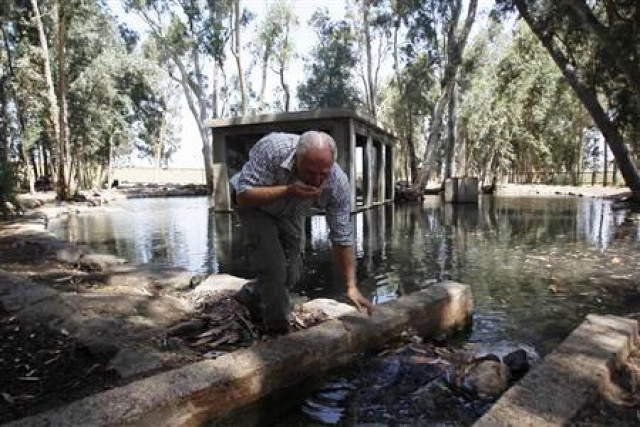Israel plans to revive ailing Jordan river
The Biblical river is just a narrow stream in many parts – polluted and stagnant. But that's about to change.

The Biblical river, which has inspired countless spirituals and folk songs, is just a narrow stream in many parts – polluted and stagnant. But that's about to change.
Thanks to desalination and wastewater recycling, there is more fresh water to go around and the Jordan will slowly be returned to its former glory.
From a dusty overlook in 40 degree heat, Ramon Ben Ari, head of Israel's Southern Jordan Drainage Authority, pointed to a spot where, years ago, water once climbed hundreds of metres when the river overflowed.
It was at the southern Jordan river, the Bible says, that the people of Israel crossed into the Promised Land. And in its waters, Christians believe Jesus was baptised.
Today, as a result of years of overtaxing for irrigation and drinking water, it snakes irresolutely along the valley from the Sea of Galilee to the Dead Sea. As far as the eye can see, it is just a few metres wide.
"It's five percent of what once flowed," said Ben Ari, who is one of the rehabilitation project leaders. "You can easily walk across without getting your head wet."
Almost all the water that feeds the river is diverted by Syria, Jordan and Israel before it reaches the south, he explained.
But for the first time, Israel, which is two-thirds arid and has battled drought since its establishment 64 years ago, has a water surplus.
This follows decades of massive investment in the country's water infrastructure. It re-uses 75 percent of its wastewater, mostly for agriculture, and by next year, 85 percent of drinking water will come from desalination plants.
The Israeli government has chosen to use this bounty to rehabilitate the country's rivers. The Jordan tops the list.
An average of 150 million cubic metres of water will be returned each year, said Energy and Water Minister Uzi Landau when he announced the plan a few weeks ago.
"That way in ten years, we will erase our debt (to nature)," he said.





1725099588-0/BeFunky-(41)1725099588-0-208x130.webp)













COMMENTS
Comments are moderated and generally will be posted if they are on-topic and not abusive.
For more information, please see our Comments FAQ